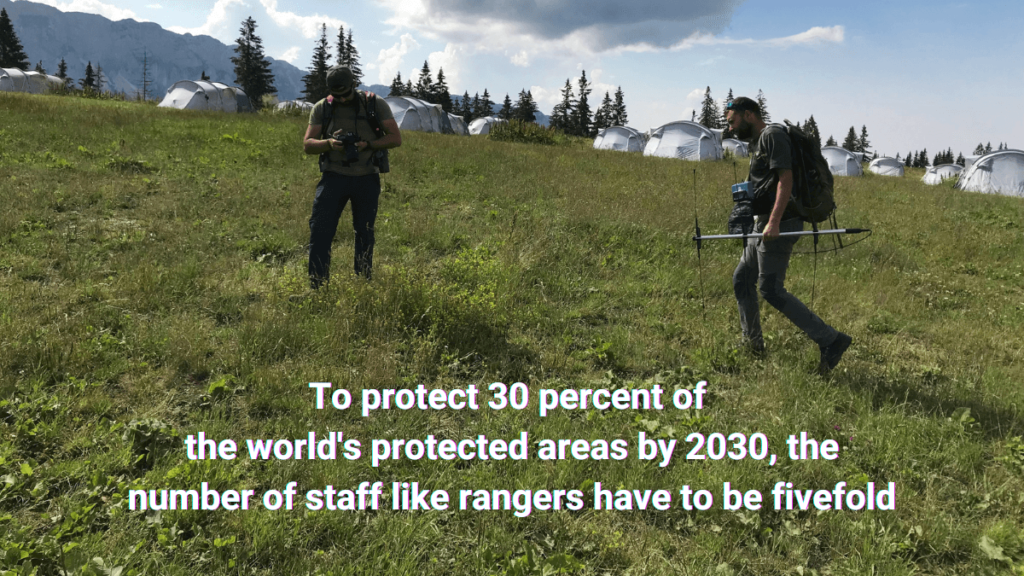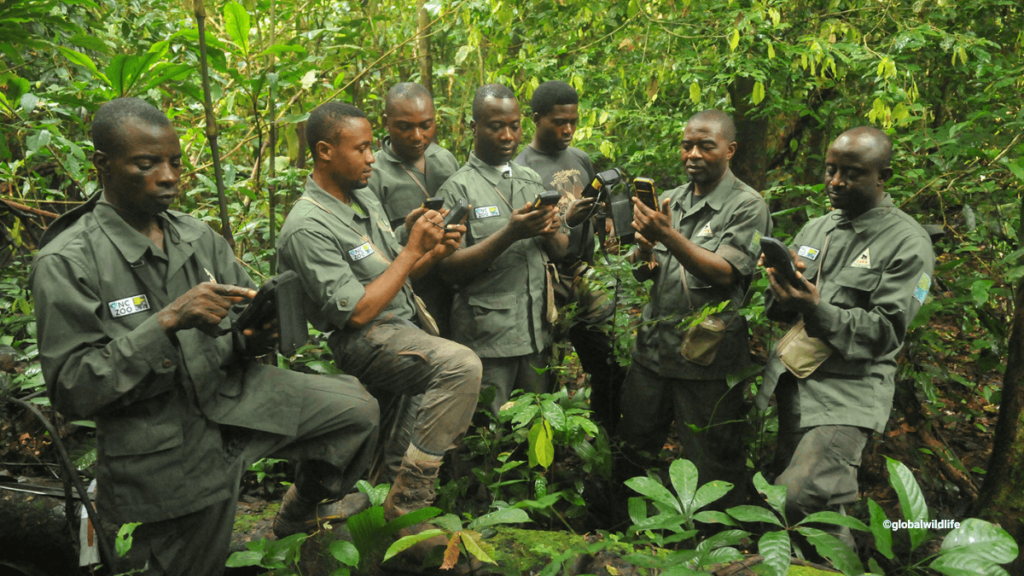To ensure the health of all life on earth, more and better equipped staff in protected areas is urgently needed. This is shown by a new scientific paper published in the scientific journal Nature Sustainability. Below we quote the most important results of the associated press release.
In the paper, an international team of scientists – including two members of the Leibniz Institute for Zoo and Wildlife Research (Leibniz-IZW) – argue that there are not enough rangers and other staff to adequately care for even the world’s current protected areas. The authors call on governments, donors, landowners and non-governmental organizations to increase the number of staff by five times to achieve the global biodiversity conservation goals.
At the 15th “Conference of the Parties” to the Convention on Biological Diversity (from 7 to 15 December in Montréal, Canada), governments from all over the world will gather to commit to protecting 30 percent of the world’s protected areas by 2030 (commonly referred to as “30 to 30”). The now published scientific research shows that there are nowhere near enough rangers and other staff to effectively manage and protect even the current protected areas.
“More people work for country clubs than rangers to adequately care for protected areas”
“Our protected area system is the lifeblood of the planet, because it provides people with water and clean air, stores carbon and prevents biodiversity loss,” says Mike Appleton, Director of Protected Area Management at Re:wild and lead author of the paper. “Yet more people in the United States work on golf courses and at country clubs than rangers and other staff to adequately care for even the world’s current protected areas.” The authors call on governments, donors, landowners and non-governmental organizations to increase the number of staff fivefold to achieve the global biodiversity conservation goals.

Co-author Andrew Tilker, species conservation officer for Asia at Re:wild and scientist at Leibniz-IZW, adds: “The world needs rangers – to protect biodiversity, to maintain important ecosystem services and to ensure that wilderness areas remain wild. Our results should be a wake-up call for the world. It is vital that we increase the number of rangers to ensure the well-being of of protected areas worldwide.”
Only 555,000 protected area staff worldwide cares for 17 percent of the world’s land area
Based on data from 176 countries and territories, the study estimates that there are only 555,000 protected area staff worldwide, responsible for 17 percent of the world’s land area (over 20 million square kilometers). Only 286,000 of them are rangers who directly monitor protected areas, enforce laws, working with visitors and local communities, and record wildlife populations. Rangers are also employed as tour guides, firefighters, conservationists and in many other capacities. Examples of protected areas are national parks, nature reserves, conservation reserves, landscape conservation areas, nature reserves, natural monuments, state parks, and certain areas that are under sustainable indigenous and traditional management.
1.53 million more rangers needed to protect 30 percent of the world’s land area by 2030
Co-author Alexandre Courtiol from Leibniz-IZW, who led the analysis of the data for the paper, and the team of scientists calculated that effectively protecting and managing 30 percent of the world’s land area by 2030 will require at least 2.9 million staff, including 1.53 million more rangers. In addition to government protected areas, many new types of areas will be created of the private and non-profit sectors and, most importantly, by indigenous and local communities who manage their own areas.
International Ranger Federation contributed to the study
This paper provides the first estimate of the number of protected area staff worldwide since 1999. The scientific study was carried out in collaboration with Re:wild, the IUCN World Commission on Protected Areas, Leibniz-IZW, WWF, Game Rangers Association of Africa, the International Ranger Federation and the Ranger Federation of Asia.


2 thoughts on “To achieve global conservation goals staff like rangers must be increased by five times”
Comments are closed.